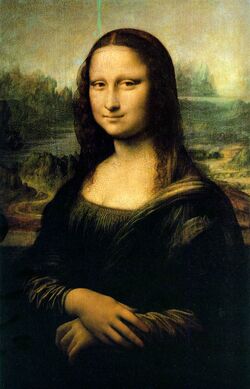Peter Chimaera
“I laughed, I cried, I was inspired enough to huff another kitten. ”
Peter Chimaera (1956-), is a visionary author and celebrated historian from North Korea. Yes, that North Korea. The content of his works has been compared to Tenacious D and Eric Clapton. Among the many themes prolific in his work are those of fate vs. free will, absurdism, and Digimon vs. Gundam.
List of works
His published works include:
- Quarter-Life: Halfway to Destruction
- Batman: Nemesis Fight
- Desert Bus Ride 1: A Romance Story and for Ladies
- DEVIL MAY CRY: THe CRYING OF THE DEMON
- Black Crisis With Master Chief
- Castlevania: Wisps of Dracula
- The Matrix Return
- Gundam Wing Final Battle
- DIGIMON 2: RETURN OF DIGIMON
- DOOM: Repercussions of Evil
- DIGIMON SAVEZ THE WROLD!!1111
In addition, Chimaera's publicist has hinted at a work tentatively entitled Gundam Wing Final Battle 2: The Second Final Battle.
Early Life
Peter Chimaera was born John Chimaera to an Asian miner and an Asian minor living in what was once Asia Minor (thus completing the coveted Asian Triple Crown before ever becoming famous for his writing). He later changed his name to Peter Chimaera at the beginning of his writing career, after famously telling his family "Who would take anything written by someone named John Chimaera seriously?"
Writing career and fame
Chimaera's first critically acclaimed work was titled DIGIMON SAVEZ THE WROLD!!1111 It was published in the Digimon section of the renowned peer-reviewed periodical Fanfiction.net. Reproduced here is the text in entirety:
By Peter Chimaera
CHAPTER ONE: Chaos in the lab
The wind flowed spraying like into Digimon's face but he was not intrested. The wrold needed to be saved becuse an evil scintist had created a machine that culd destory it! Digimon has a hard time getting into the scientist lair where the man had a gun. "It's too late," he smiled. It was an evil smile that he held the gun with. "No it's not too late YOU MONSTER! I WIIL DESTORY YOU!" and he charged. And he used his digimon powar to kill him. The wrold was saved from evil. "Hooray I saved the wolrd!" he shouted. "THE WORLD IS SAFE"
CHAPTER TWO: Digimon goes home
But he found that on the way home there was no road. It was too late like the scintist said. He had already destored the road and the people were trapped on the island that they were trapped in. There was nothing he could do. So he went home and cried.
There are varied interpretations on Chimaera's message with this insightful tale, but one school of thought is generally agreed upon among Chimaera experts. This theory holds that the story is a metaphor of science's advance at the expense of morality. An oft-quoted line from the text that expresses this theme is "Digimon has a hard time getting into the scientist lair where the man had a gun." This also is the start of a motif that Chimaera uses in several of his other works, where he switches from the past to present tense in mid-sentence, indicating to the reader that the implications of his writing go far beyond the chronological past or present. In this sentence specifically, Chimaera is specifically saying, "You fools! Look how far you've let science progress! Now it can no longer be stopped, for it has a gun and you cannot get to it!" Another meaningful quote is "Hooray I saved the wolrd!" from the end of Chapter 1. Chimaera is saying here that perhaps the government is capable of saving the wolrd from science, but certainly not the world or even the wrold. Chapter 2 confirms the suspicions of the most astute readers: science may have been stopped in the present, but neither the past nor the future can be changed. Many global warming activists see meaning in Chapter 2, likening the fact that the road has been destroyed by science and cannot be fixed to the destructive effects of global carbon emissions. "If we do not take action now," a popular mantra goes, "then we we will be trapped on the planet that we are trapped in." However, most Chimaerans simply tell Al Gore to shut the fuck up.
Chimera's next major work remains his most popular, the legendary Gundam Wing Final Battle. The original text, with comments in italics, follows.
Here Chimaera continues the theme of mistrust for science and technology when the formatting does not work as it should. At the same time, he is alerting the reader that the contents of the title are central to the plot.
Heero was having rough day at school and his muffin for lunch did not taste the good. "No I am uhngry and this is not good" and threw the muffin and hit a guy.
The muffin represents human life in its entirety. Our protagonist has a great desire for life, but wants something new out of it.
"Hey the " guy said. It was having bad day.
Chimaera masterfully uses his technique of introduced ambiguity. Is the man's name guy, or Hey the? Is "Hey the " being used as an adjective? Is the guy having a bad day? Or perhaps the muffin is having a bad day?
"Sorry" and so Heero went to his gundam and he flew away to be by himself at the north pole.
Heero escapes social conflict with a fight-or-flight that is inappropriate in modern society. This highlights the theme of dissatisfaction with modern life.
"HAHAHAHAHA" said Zechs who was waiting there for him "I have returned and I will kill the erath with gundam powar!"
Heero is put through a moral struggle that Chimaera leaves the reader to contemplate. Perhaps he would like to see the world destroyed. Chimaera's misspellings are always meaningful, and in this case, the erath is a utopian world where Heero would like to live. Note that while Zechs mentions Gundam, Digimon are not mentioned. It is implied that Gundam are so powerful Digimon were forced from the Earth and even the erath, but perhaps they still remain in the wrold, the distopian future from Chimaera's previous work.
They fought and Heero won. But Zechs detonatationed his gundam and the north pole blew up.
Chimaera forces the reader to stumble over a word, highlighting the fact that this is a monumental event, not something that one can skim over but something that will remain in his mind.
"No!!!!!!!!!!!!" Heero was mad at all the penguins die.
No indeed, Peter Chimaera. You are a master of the written language.
Zechs got the ship and flew to space. Heero's gundam was not good for space the he went spoking with talk to the gundam inventor who fixed it.
Chimaera's use of language here is beyond the comprehension of all but the most insightful scholars.
"Now I can fly to space combat" and they fought in space where tehy battled with beam swords antil both mobile suits were all damaged and none could move. This was the end of combat and Duo found them and rescued Heero.
Heero's subtle replacement of antil with until signifies that this battle is on the scale of an ant, nothing compared to the cosmic battle man fights against human life.
"No I cannot be left to die" Zechs said and he was stuck there in space.
The meaning here is obvious. Our problems cannot be destroyed, they can only be sealed away inside us until they become a huge brain tumor and we have to have surgery and it costs a shitload and we become a burden on our whole family.
"Thank you" Heero and Duo went to Earth where they had peace.
MAYBE THE END . . . . ?
This sends shivers down my spine (Body's achin' all the time).
- Critical review
A popular alternate analysis and defense of GUNDAM WING - Final Battle was given by Chimaera's contemporary Black-Telic shortly after publication.
I cannot see how anyone could miss the pure, simple brilliance held within this piece. Those who try to shoot down this wonderful work are looking at its surface and its surface alone, completely and totally missing the deeper meaning hidden within each line, enhancing and strengthening your already breathtaking work. They are simply jealous and afraid that they will never be able to write with the same power and ability that it seems only you possess.
It saddens me that no one sees the brilliance here. Obviously, this is a statement against senseless warfare. The missing punctuation subtly explains the shortsightedness of the military and those that support it--while they seem to look at the bigger picture, they miss the most important factor in warfare--the lives desecrated and torn apart, represented by the minute and yet passionately alive comma. The fact that there is a space between the dialogue and the closing quotation mark shows how sorely the comma is missed while it is gone, that its place is preserved even though it has vanished from the story in its entirety. The sentences hang open, that white gap a beacon of loneliness, giving the entire work a haunted feel.
Chimaera's last significant work to date was Doom: Repercussions of Evil. The unabridged text follows.
John Stalvern waited. The lights above him blinked and sparked out of the air. There were demons in the base. He didn't see them, but had expected them now for years. His warnings to Cernel Joson were not listenend to and now it was too late. Far too late for now, anyway. John was a space marine for fourteen years. When he was young he watched the spaceships and he said to dad "I want to be on the ships daddy." Dad said "No! You will BE KILL BY DEMONS" There was a time when he believed him. Then as he got oldered he stopped. But now in the space station base of the UAC he knew there were demons. "This is Joson" the radio crackered. "You must fight the demons!" So John gotted his palsma rifle and blew up the wall. "HE GOING TO KILL US" said the demons "I will shoot at him" said the cyberdemon and he fired the rocket missiles. John plasmaed at him and tried to blew him up. But then the ceiling fell and they were trapped and not able to kill. "No! I must kill the demons" he shouted The radio said "No, John. You are the demons" And then John was a zombie.
"And then John was a zombie." Chilling indeed.

